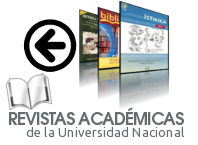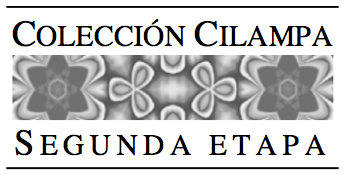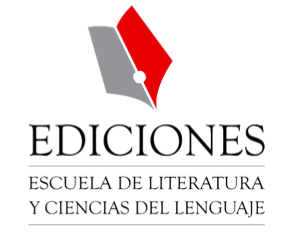Introduction of Unaccusative Verbs in the Spanish as a Foreign Language Classroom
DOI:
https://doi.org/10.15359/rl.1-65.5Keywords:
argument structure, lexicon-syntax interface, unaccusative verbs, verb alternationsAbstract
Verbal transitivity always supposes a great difficulty for Chinese students of Spanish as a foreign language (SFL). Verbs with unstable valency behavior cause confusion. According to traditional grammar, there are transitive, intransitive, or impersonal verbs. The Unaccusative Hypothesis (Perlmutter, 1971) classifies intransitive verbs as unaccusative or unergative. In this article, we propose that word order of the subject and predicate, and the absolute passive participle structure and middle voice in Spanish, can be understood more easily with the introduction of the concept of unaccusative verbs analyzed with the lexical-syntactic interface, thus offering a new perspective for the teaching of SFL to Chinese students.
References
Bloomfield, Leonard. Language. Cambridge, MA: University of Chicago Press, 1933.
Bosque, Ignacio y Javier Gutiérrez-Rexach. Fundamentos de sintaxis formal. Madrid: Akal, 2009.
Bosque, Ignacio y Violeta Demonte. Gramática descriptiva de la lengua española. Madrid: Espasa, 1999.
Burzio, Luigi. Italian Syntax. A Government-Binding Approach. Dordrecht, Reidel: 1981.
Chomsky, Noam. Lectures on Government and Binding. Dordrecht: Foris, 1981.
Chomsky, Noam. The Minimalist Program. Cambridge, MA: MIT Press, 1995.
Escandell Vidal, María. Invitación a la lingüística. Madrid: Editorial Universitaria Ramón Areces, 2011.
Fillmore, Charles J. «The Case for Case», Universals in Linguistic Theory. Londres: Holt, Rinehart and Winston, 1968.
Gallego, Ángel J. Perspectivas de sintaxis formal. Madrid: Akal, 2015.
González Nieto, Luis. Teoría lingüística y enseñanza de la lengua. Madrid: Cátedra, 2001.
Guangcheng, Wang y Xiuqing Wang. «Theoretical Implications and Significance of the Unaccusativity Hypothesis Revisited», Journal of PLA University of Foreign Languages 39 (2016): 40-47.
Levin, Beth. English Verb Classes and Alternations: A Preliminary Investigation. Cambridge, MA: University of Chicago Press, 1993.
Levin, Beth y Malka Rappaport Hovav. Argument Realization. Cambridge MA: Cambridge University Press, 2005.
Levin, Beth y Malka Rappaport Hovav. Unaccusativity at the Syntax-Lexical Semantics Interface. Cambridge MA: MIT Press, 1995.
Macià, Josep, Jaume Mateu, Josep Quer y M. Teresa Espinal. Semántica. Madrid: Akal, 2014.
Martinet, Andrè. Syntaxe générale. Madrid: Gredos, 1987.
Mateu i Fontanals, Jaume. «A Minimalist Account of Conflation Processes: Parametric Variation at the Lexicon-Syntax Interface». Departamento de Filología Catalana, Universidad Autónoma de Barcelona, <http://filcat.uab.cat/clt/publicacions/reports/pdf/GGT-00-1.pdf>.
Mateu i Fontanals, Jaume. Argument Structure: Relational Construal at the Syntax-Semantics Interface. Barcelona: Universidad Autónoma de Barcelona, 2002.
Mendikoetxea, Amaya. «En busca de los primitivos léxicos y su realización sintáctica: del léxico a la sintaxis y viceversa», 2 Xarxa Temática de Gramática Teórica. Barcelona: 2004.
Monstrul, Silvina. «On Knowledge and Development of Unaccusativity in Spanish L2 Acquisition». Linguistics 43, 6 (2005): 1153-1190. DOI: https://doi.org/10.1515/ling.2005.43.6.1153.
Perlmutter, David M. «Impersonal Passives and the Unaccusative Hypothesis». Annual Meeting of the Berkeley Linguistics Society. Berkeley, CA: UC Berkeley: 1978.
Pustejovsky, James. «The Syntax of Event Structure», Lexical and Conceptual Structure. Steven B. Levin (ed.). Oxford: Blackwell, 1991.
Stowell, Tim. Origins of Phrase Structure. Cambridge, MA: MIT Press, 1981.
UE, Noriko. «On Unergative and Unaccusative Verbs in English». 龙谷大学论集 [Journal of Ryukoku University] (2009).
Van Valin, Robert. «Semantic Parameters of Split Intransitivity», Language 66, 2 (1990): 221-260. DOI: https://doi.org/10.2307/414886.
Vendler, Zino. Linguistics in Philosophy. Londres: Cornell University Press, 1967.
Downloads
Published
How to Cite
Issue
Section
License
Principios básicos:
a) Los autores conservarán los derechos de propiedad intelectual de sus aportes o artículos;
b) Cada autor deberá indicar expresamente que ese artículo lo entrega, en calidad de exclusividad, a la revista LETRAS; y
c) La revista Letras se reservará el derecho de autorizar para fines académicos no lucrativos la reproducción y uso de ese material por parte de terceros, siempre que éstos indiquen expresamente la procedencia del artículo. Todo ello se postula en concordancia con la normativa de "Creative Commons Atribution License", recomendada.

This work is licensed under a Creative Commons Attribution-NonCommercial-NoDerivs 3.0 Costa Rica License.















